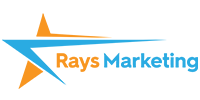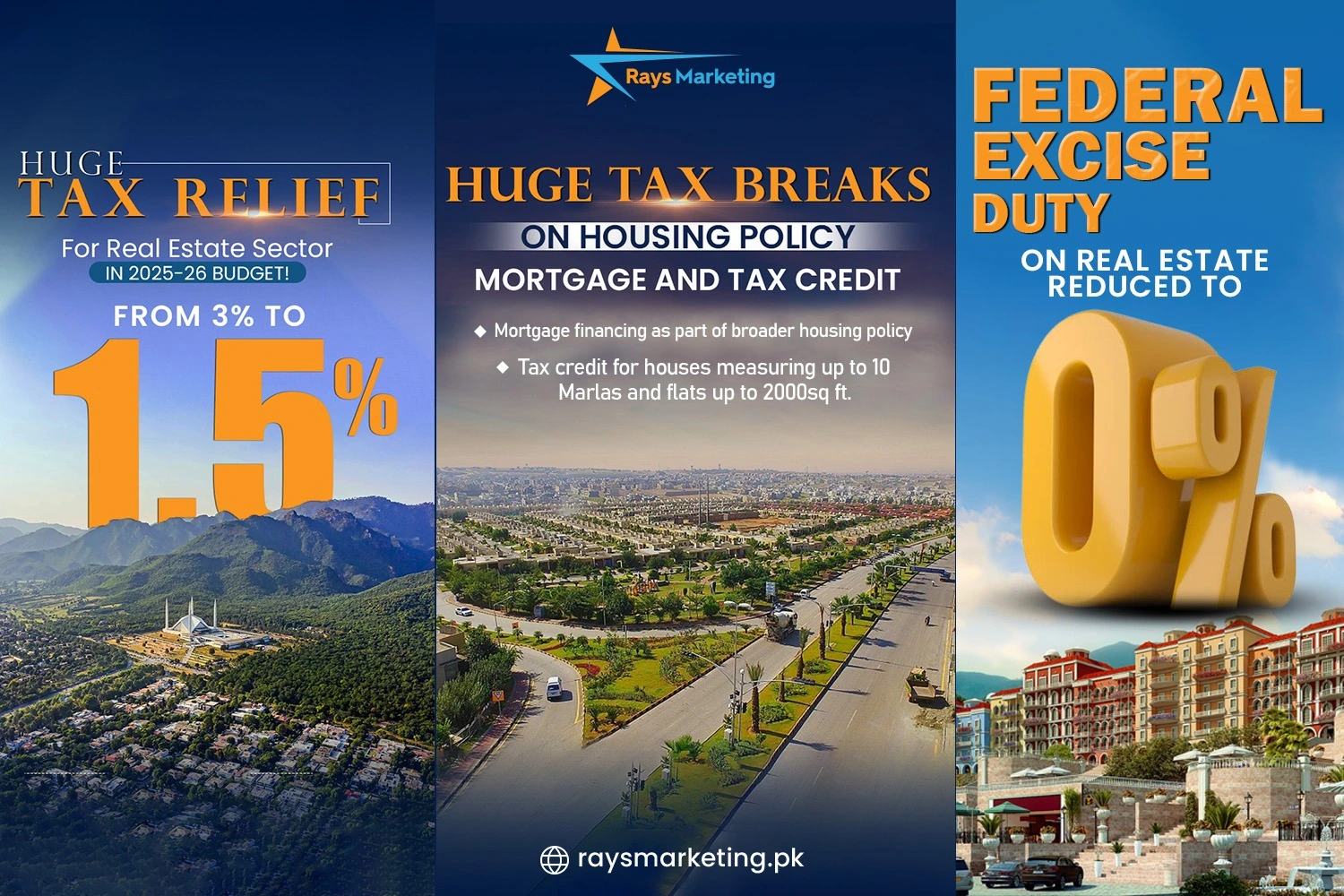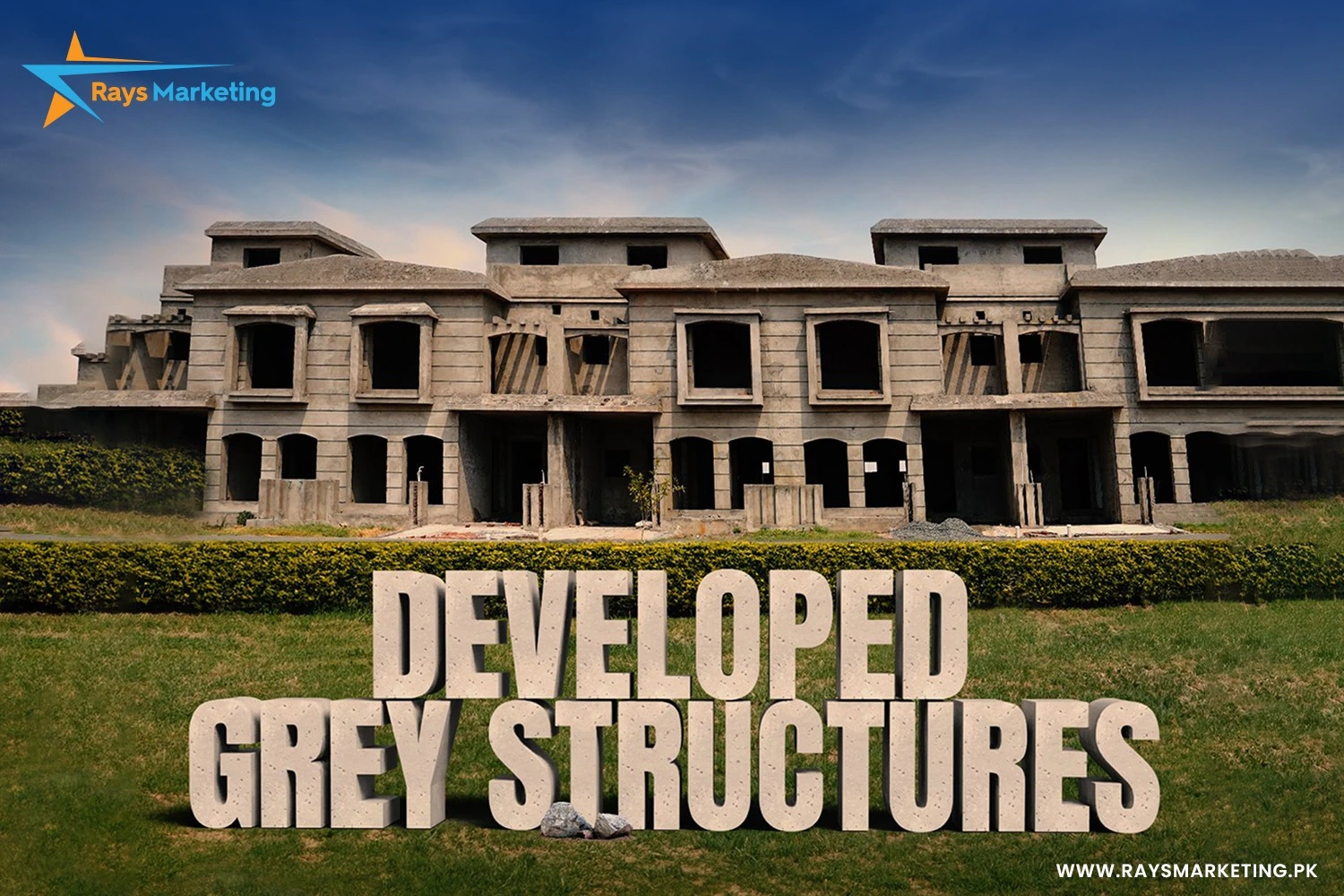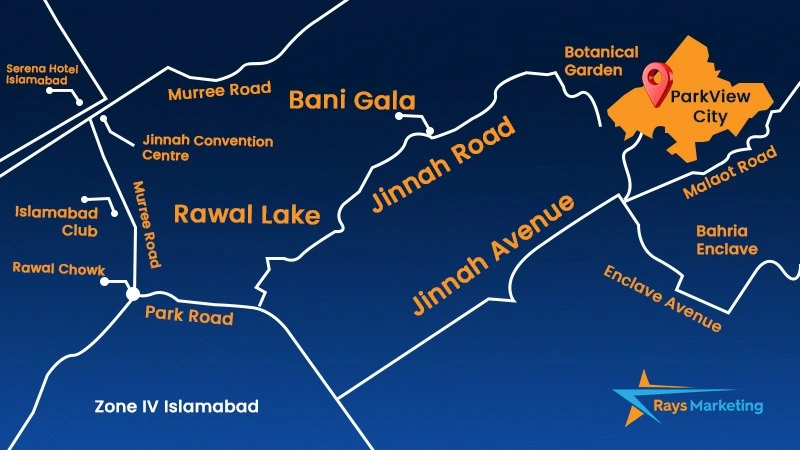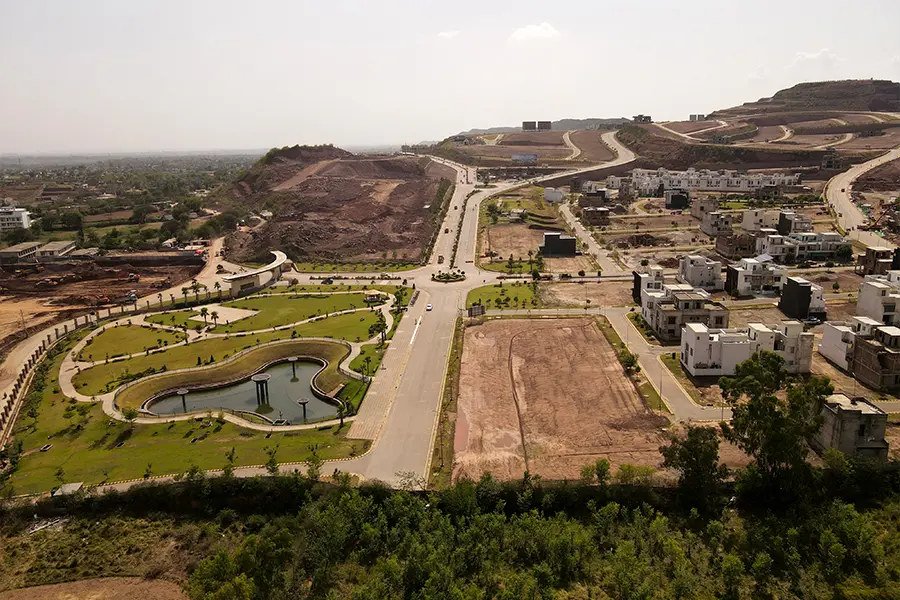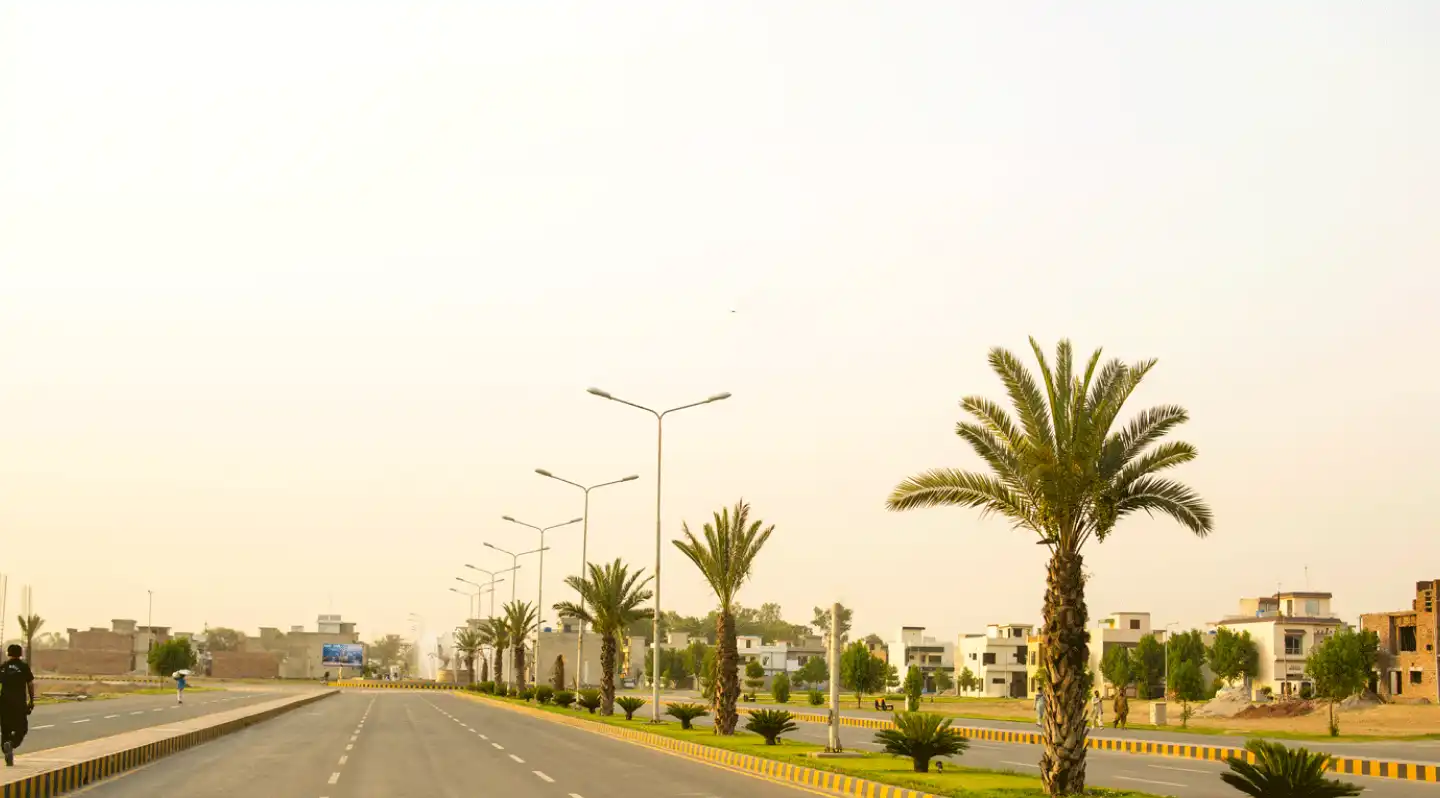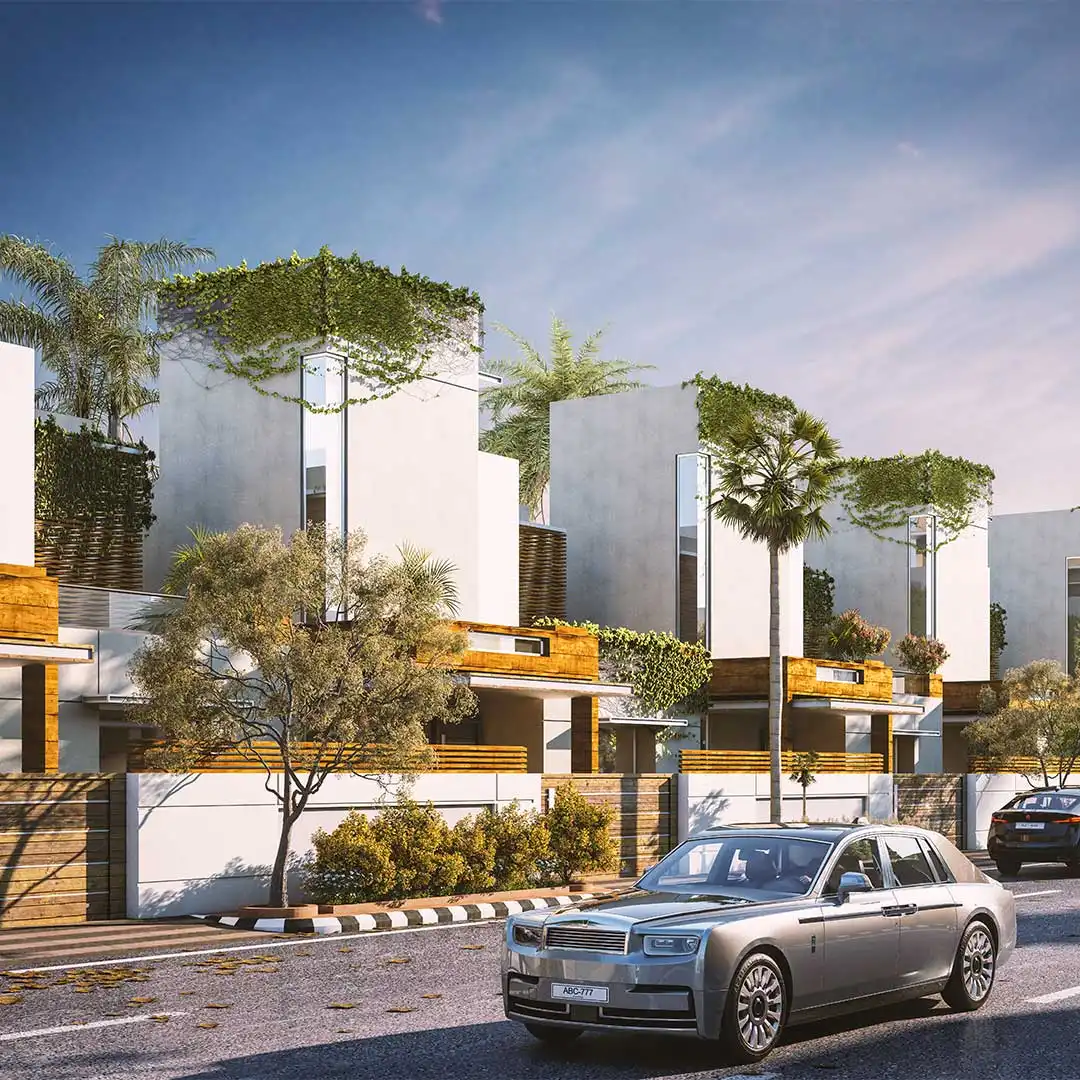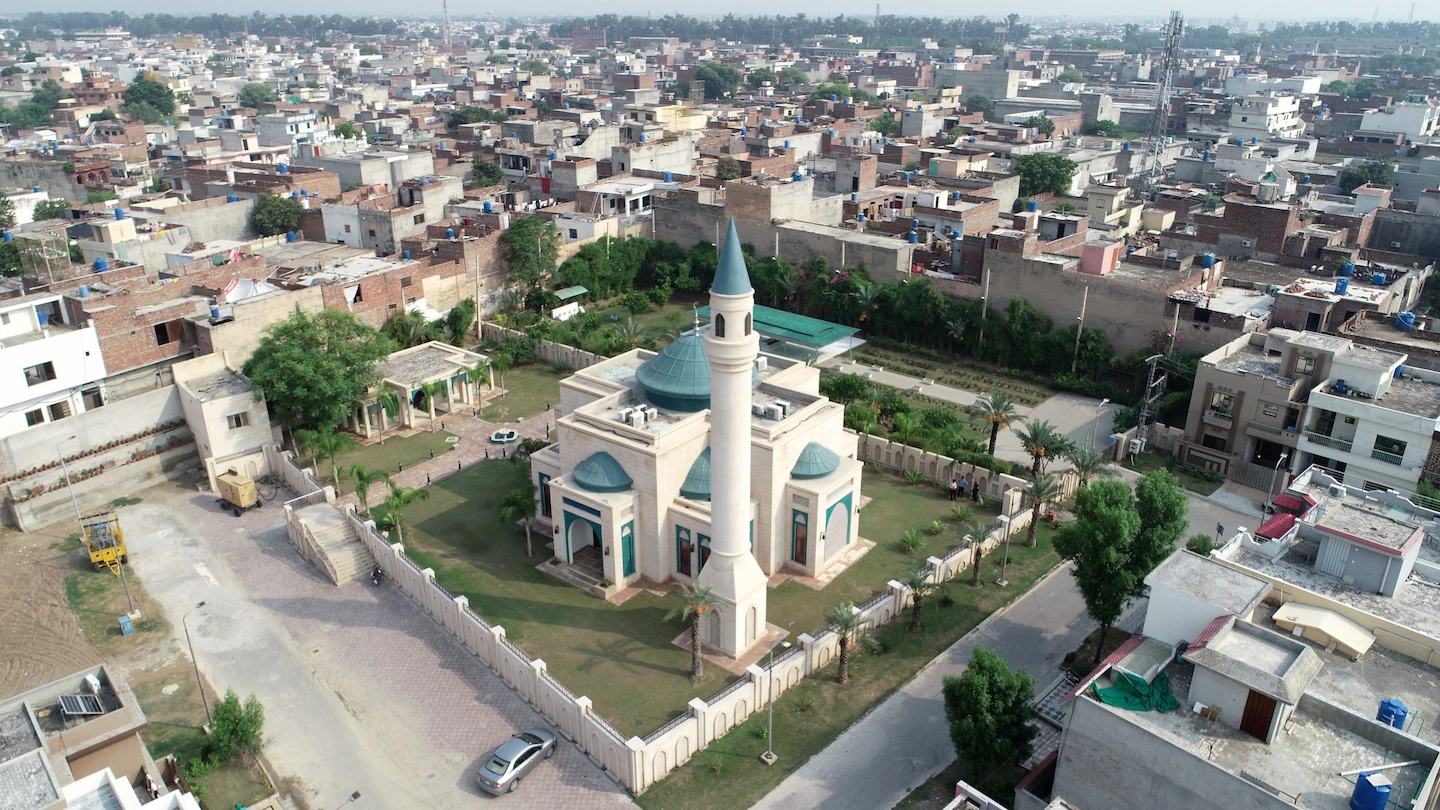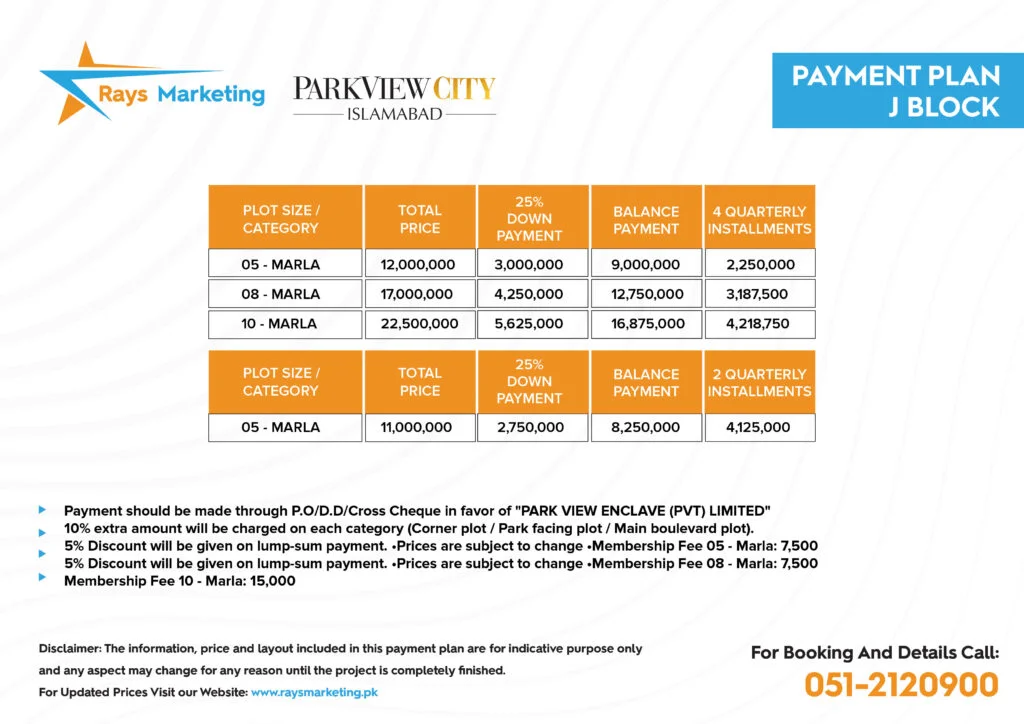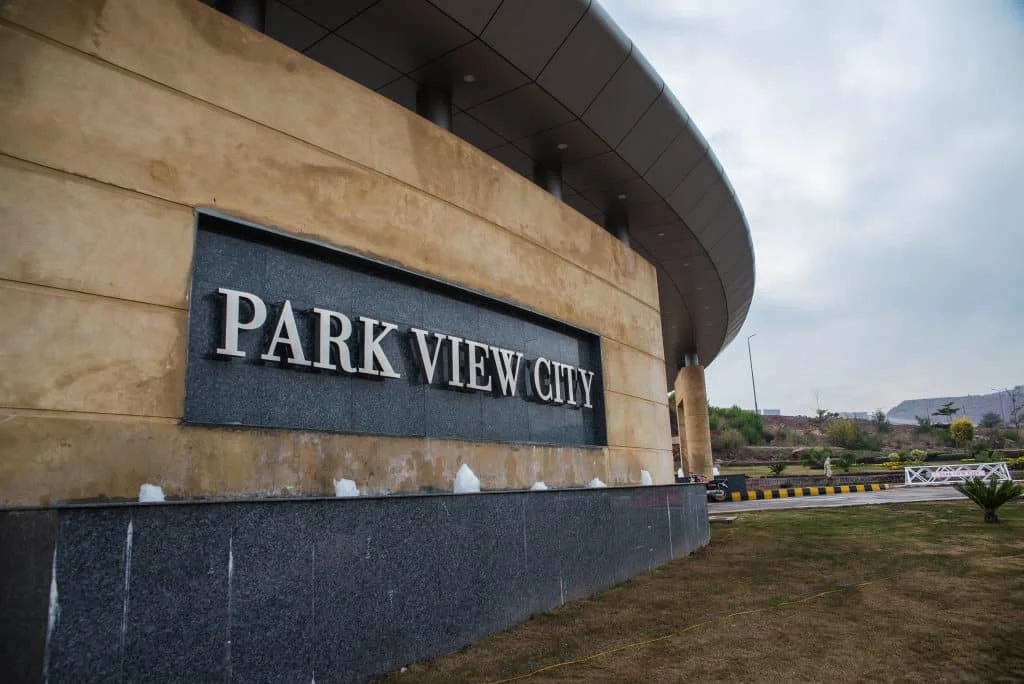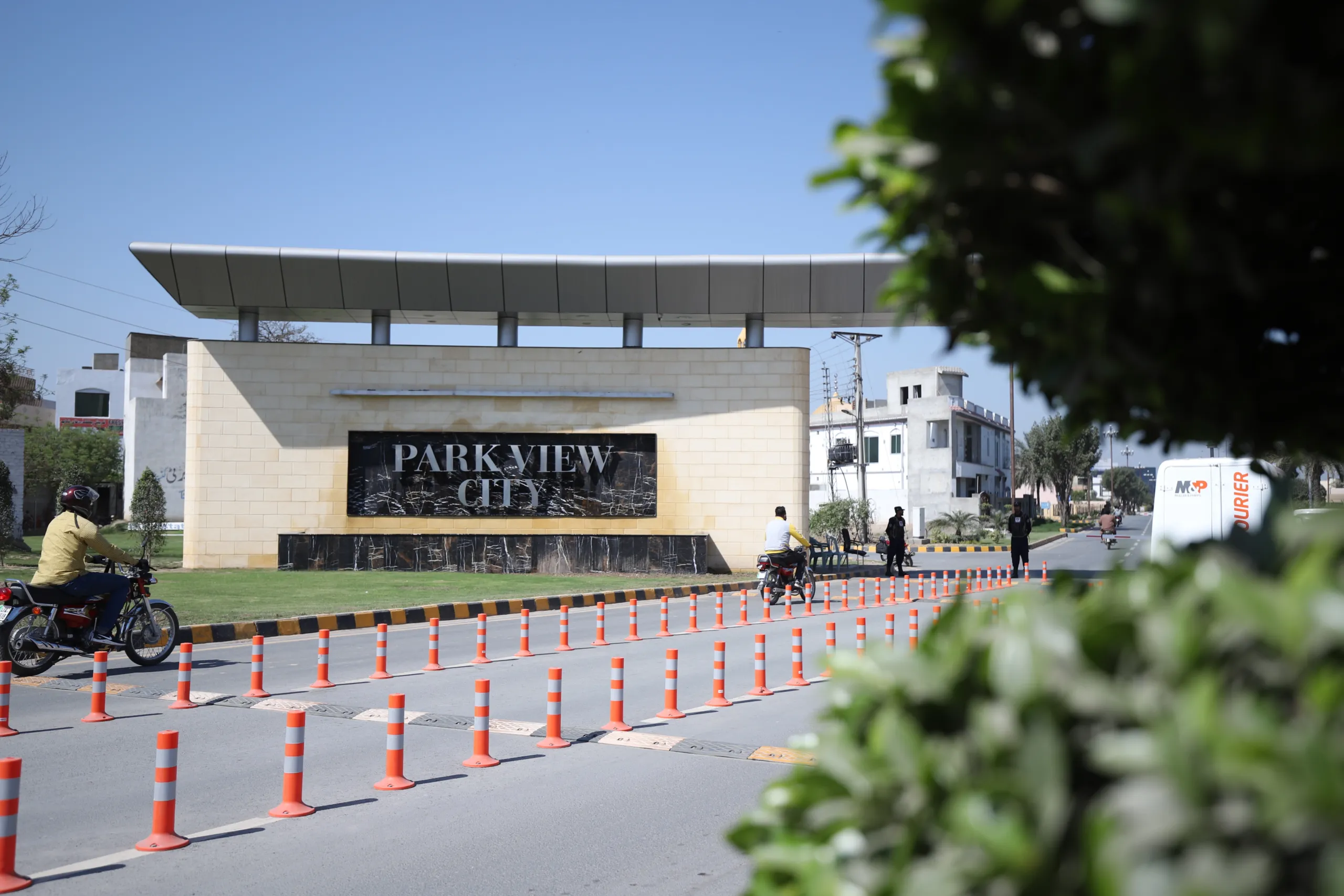Real estate business and especially private property investment including land has always been one of the favorite ways to generate wealth and ensure future stability in Pakistan. It is important, whether for the purpose of constructing one’s future home or as part of an appreciation strategy, to be aware of these subtleties. Here’s a detailed look at the pros and cons of buying land in Pakistan in 2024:
Pros
- Appreciation Potential: Thus, the experience of Pakistan shows that land values have always been growing rapidly in the long term. Areas close to developments such as malls and transport areas can trigger fast appreciation.
- Low Maintenance Costs: Unlike developed properties, vacant land would not need much maintenance hence the expenses would not be as high.
- Freedom of Construction: It provides the freedom of how to build according to the owner of the land depending on the laws of zoning. This enables the choice of investment with optimum gain to be made.
- Ownership Control: This means that the direct ownership of land provides a virtual guarantee of the security of one’s tangible assets, unlike some cases observed in the other investment products.
- Capital Growth: Thus, purchasing serious land in good locations generates steady increases in its value and becomes a profitable long-term investment.
- Availability and Demand: Thus, demand for land continues to thrive no matter the economic situation as land is viewed as a more stable and possibly more lucrative investment.

Cons
- Legal Challenges: The cases of land disputes and encroachment are quite frequent in Pakistan and they result in legal cases that take a lot of time to resolve thus affecting even the investments and the returns on these.
- Zoning and Regulatory Issues: The zoning laws control the density of the constructions as well as kinds of constructions that would be made thus it controls the use and productivity of the purchased land.
- Infrastructure Dependency: The case of land value reveals that it is one of factors that may experience a significant change with the development of nearby infrastructures. A sentiment similar to that of lack of appreciation by outsiders is lack of amenities and infrastructure that may hinder appreciation.
- Initial Investment: Prime land costs a lot of capital when purchased for development and this may be hard for some investors to afford.
- Lack of Income Generation: Unlike rental property income properties, vacant land usually does not produce any raw income and this requires one to be more creative or wait for the value to appreciate.
- Market Volatility: However, the fate of land values in specific markets is to rise over time; economic cycles influence demand and market liquidity, which affects possible/probable return rates.
Conclusion
Buying land in Pakistan offers substantial opportunities for capital growth and asset security, but it comes with its share of challenges. Investors should carefully assess location, regulatory environment, and long-term development plans before committing. By understanding these pros and cons, prospective buyers can make informed decisions to navigate the dynamic real estate landscape of Pakistan effectively.
Invest wisely, and may your land investments in Pakistan prosper with careful planning and strategic foresight.
FAQs
Real estate business and especially private property investment including land has always been one of the favorite ways to generate wealth and ensure future stability in Pakistan. It is important, whether for the purpose of constructing one’s future home or as part of an appreciation strategy, to be aware of these subtleties. Here’s a detailed look at the pros and cons of buying land in Pakistan in 2024:
Pros
- Appreciation Potential: Thus, the experience of Pakistan shows that land values have always been growing rapidly in the long term. Areas close to developments such as malls and transport areas can trigger fast appreciation.
- Low Maintenance Costs: Unlike developed properties, vacant land would not need much maintenance hence the expenses would not be as high.
- Freedom of Construction: It provides the freedom of how to build according to the owner of the land depending on the laws of zoning. This enables the choice of investment with optimum gain to be made.
- Ownership Control: This means that the direct ownership of land provides a virtual guarantee of the security of one’s tangible assets, unlike some cases observed in the other investment products.
- Capital Growth: Thus, purchasing serious land in good locations generates steady increases in its value and becomes a profitable long-term investment.
- Availability and Demand: Thus, demand for land continues to thrive no matter the economic situation as land is viewed as a more stable and possibly more lucrative investment.

Cons
- Legal Challenges: The cases of land disputes and encroachment are quite frequent in Pakistan and they result in legal cases that take a lot of time to resolve thus affecting even the investments and the returns on these.
- Zoning and Regulatory Issues: The zoning laws control the density of the constructions as well as kinds of constructions that would be made thus it controls the use and productivity of the purchased land.
- Infrastructure Dependency: The case of land value reveals that it is one of factors that may experience a significant change with the development of nearby infrastructures. A sentiment similar to that of lack of appreciation by outsiders is lack of amenities and infrastructure that may hinder appreciation.
- Initial Investment: Prime land costs a lot of capital when purchased for development and this may be hard for some investors to afford.
- Lack of Income Generation: Unlike rental property income properties, vacant land usually does not produce any raw income and this requires one to be more creative or wait for the value to appreciate.
- Market Volatility: However, the fate of land values in specific markets is to rise over time; economic cycles influence demand and market liquidity, which affects possible/probable return rates.
Conclusion
Buying land in Pakistan offers substantial opportunities for capital growth and asset security, but it comes with its share of challenges. Investors should carefully assess location, regulatory environment, and long-term development plans before committing. By understanding these pros and cons, prospective buyers can make informed decisions to navigate the dynamic real estate landscape of Pakistan effectively.
Invest wisely, and may your land investments in Pakistan prosper with careful planning and strategic foresight.
FAQs
Real estate business and especially private property investment including land has always been one of the favorite ways to generate wealth and ensure future stability in Pakistan. It is important, whether for the purpose of constructing one’s future home or as part of an appreciation strategy, to be aware of these subtleties. Here’s a detailed look at the pros and cons of buying land in Pakistan in 2024:
Pros
- Appreciation Potential: Thus, the experience of Pakistan shows that land values have always been growing rapidly in the long term. Areas close to developments such as malls and transport areas can trigger fast appreciation.
- Low Maintenance Costs: Unlike developed properties, vacant land would not need much maintenance hence the expenses would not be as high.
- Freedom of Construction: It provides the freedom of how to build according to the owner of the land depending on the laws of zoning. This enables the choice of investment with optimum gain to be made.
- Ownership Control: This means that the direct ownership of land provides a virtual guarantee of the security of one’s tangible assets, unlike some cases observed in the other investment products.
- Capital Growth: Thus, purchasing serious land in good locations generates steady increases in its value and becomes a profitable long-term investment.
- Availability and Demand: Thus, demand for land continues to thrive no matter the economic situation as land is viewed as a more stable and possibly more lucrative investment.

Cons
- Legal Challenges: The cases of land disputes and encroachment are quite frequent in Pakistan and they result in legal cases that take a lot of time to resolve thus affecting even the investments and the returns on these.
- Zoning and Regulatory Issues: The zoning laws control the density of the constructions as well as kinds of constructions that would be made thus it controls the use and productivity of the purchased land.
- Infrastructure Dependency: The case of land value reveals that it is one of factors that may experience a significant change with the development of nearby infrastructures. A sentiment similar to that of lack of appreciation by outsiders is lack of amenities and infrastructure that may hinder appreciation.
- Initial Investment: Prime land costs a lot of capital when purchased for development and this may be hard for some investors to afford.
- Lack of Income Generation: Unlike rental property income properties, vacant land usually does not produce any raw income and this requires one to be more creative or wait for the value to appreciate.
- Market Volatility: However, the fate of land values in specific markets is to rise over time; economic cycles influence demand and market liquidity, which affects possible/probable return rates.
Conclusion
Buying land in Pakistan offers substantial opportunities for capital growth and asset security, but it comes with its share of challenges. Investors should carefully assess location, regulatory environment, and long-term development plans before committing. By understanding these pros and cons, prospective buyers can make informed decisions to navigate the dynamic real estate landscape of Pakistan effectively.
Invest wisely, and may your land investments in Pakistan prosper with careful planning and strategic foresight.
FAQs
Real estate business and especially private property investment including land has always been one of the favorite ways to generate wealth and ensure future stability in Pakistan. It is important, whether for the purpose of constructing one’s future home or as part of an appreciation strategy, to be aware of these subtleties. Here’s a detailed look at the pros and cons of buying land in Pakistan in 2024:
Pros
- Appreciation Potential: Thus, the experience of Pakistan shows that land values have always been growing rapidly in the long term. Areas close to developments such as malls and transport areas can trigger fast appreciation.
- Low Maintenance Costs: Unlike developed properties, vacant land would not need much maintenance hence the expenses would not be as high.
- Freedom of Construction: It provides the freedom of how to build according to the owner of the land depending on the laws of zoning. This enables the choice of investment with optimum gain to be made.
- Ownership Control: This means that the direct ownership of land provides a virtual guarantee of the security of one’s tangible assets, unlike some cases observed in the other investment products.
- Capital Growth: Thus, purchasing serious land in good locations generates steady increases in its value and becomes a profitable long-term investment.
- Availability and Demand: Thus, demand for land continues to thrive no matter the economic situation as land is viewed as a more stable and possibly more lucrative investment.

Cons
- Legal Challenges: The cases of land disputes and encroachment are quite frequent in Pakistan and they result in legal cases that take a lot of time to resolve thus affecting even the investments and the returns on these.
- Zoning and Regulatory Issues: The zoning laws control the density of the constructions as well as kinds of constructions that would be made thus it controls the use and productivity of the purchased land.
- Infrastructure Dependency: The case of land value reveals that it is one of factors that may experience a significant change with the development of nearby infrastructures. A sentiment similar to that of lack of appreciation by outsiders is lack of amenities and infrastructure that may hinder appreciation.
- Initial Investment: Prime land costs a lot of capital when purchased for development and this may be hard for some investors to afford.
- Lack of Income Generation: Unlike rental property income properties, vacant land usually does not produce any raw income and this requires one to be more creative or wait for the value to appreciate.
- Market Volatility: However, the fate of land values in specific markets is to rise over time; economic cycles influence demand and market liquidity, which affects possible/probable return rates.
Conclusion
Buying land in Pakistan offers substantial opportunities for capital growth and asset security, but it comes with its share of challenges. Investors should carefully assess location, regulatory environment, and long-term development plans before committing. By understanding these pros and cons, prospective buyers can make informed decisions to navigate the dynamic real estate landscape of Pakistan effectively.
Invest wisely, and may your land investments in Pakistan prosper with careful planning and strategic foresight.
FAQs
Related Posts
Get A Free Expert Advice – Reach Out to Us
Get A Free Expert Advice – Reach Out to Us
Call us today at (+92)-51-2120900
Call us today at (+92)-51-2120900
